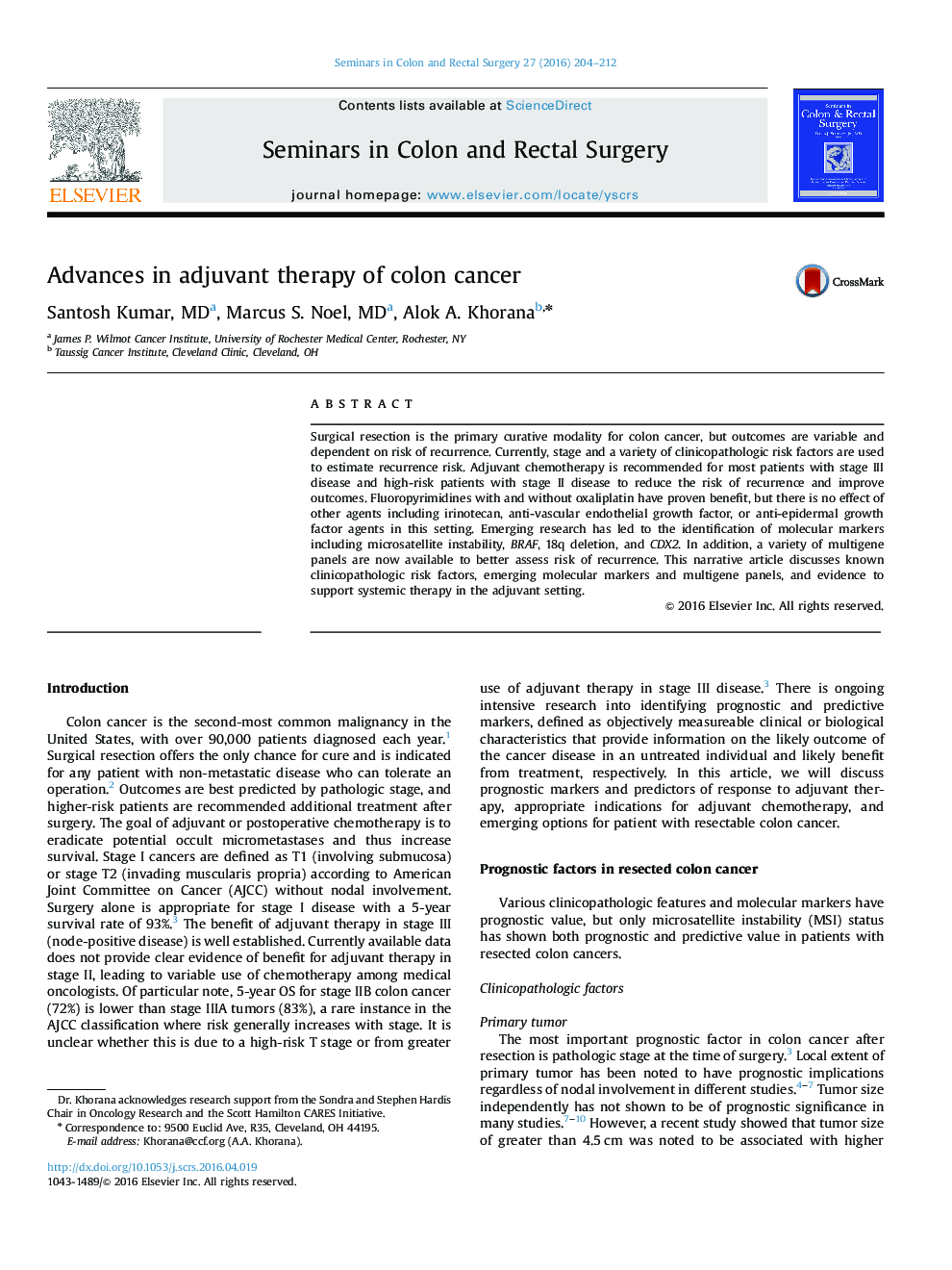| Article ID | Journal | Published Year | Pages | File Type |
|---|---|---|---|---|
| 5661587 | Seminars in Colon and Rectal Surgery | 2016 | 9 Pages |
Surgical resection is the primary curative modality for colon cancer, but outcomes are variable and dependent on risk of recurrence. Currently, stage and a variety of clinicopathologic risk factors are used to estimate recurrence risk. Adjuvant chemotherapy is recommended for most patients with stage III disease and high-risk patients with stage II disease to reduce the risk of recurrence and improve outcomes. Fluoropyrimidines with and without oxaliplatin have proven benefit, but there is no effect of other agents including irinotecan, anti-vascular endothelial growth factor, or anti-epidermal growth factor agents in this setting. Emerging research has led to the identification of molecular markers including microsatellite instability, BRAF, 18q deletion, and CDX2. In addition, a variety of multigene panels are now available to better assess risk of recurrence. This narrative article discusses known clinicopathologic risk factors, emerging molecular markers and multigene panels, and evidence to support systemic therapy in the adjuvant setting.
